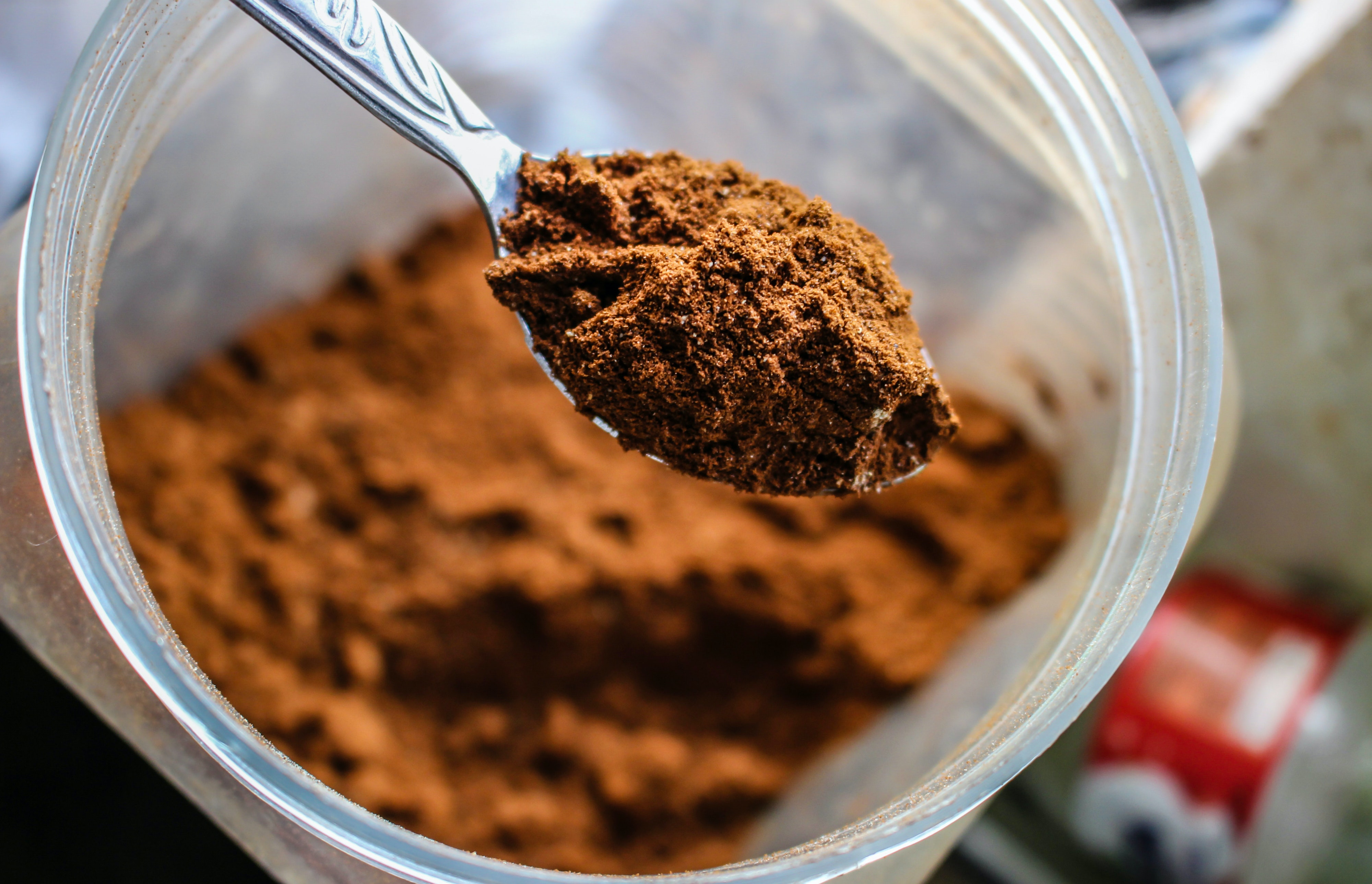Protein Powder - Be It Animal, Plant Or Neither
Protein powder supplements can be a convenient way to increase your protein intake
4/15/2023

Protein is an essential macronutrient that plays a crucial role in building and repairing tissues in the body. It is also important for maintaining a healthy immune system, producing hormones and enzymes, and transporting nutrients throughout the body. Protein powder supplements have become increasingly popular in recent years, with many people using them as a convenient and quick way to increase their daily protein intake. However, there is a debate about whether it is best to use animal protein or plant protein for the best results and whether it is better to obtain nutrition from a food source and not in powder form. In this article, we will explore the benefits of protein powder and examine the evidence for the use of animal and plant-based protein powders.
Benefits of Protein Powder
Protein powder is a popular dietary supplement used by athletes, bodybuilders, and people who want to increase their protein intake. There are many benefits to using protein powder, including:
Convenience: Protein powder is a quick and easy way to increase your protein intake, especially if you have a busy lifestyle or don't have time to prepare high-protein meals.
Muscle growth and repair: Protein is essential for muscle growth and repair. Consuming protein powder after exercise can help to increase muscle protein synthesis, which is the process of building new muscle tissue.
Weight loss: Protein powder can help to promote weight loss by increasing satiety, reducing appetite, and boosting metabolism.
Health benefits: Protein powder can provide many health benefits, including improving bone density, reducing inflammation, and lowering blood pressure. AnimalProtein Animal vs. Plant Protein
Absorption and digestion: Animal protein is generally considered to be more easily absorbed and digested than plant protein. Animal proteins contain all the essential amino acids that the body needs, making them a complete protein. Plant proteins, on the other hand, are often lacking in one or more essential amino acids, making them an incomplete protein.
Environmental impact: Plant protein is generally considered to have a lower environmental impact than animal protein. Animal protein production is resource-intensive and contributes to greenhouse gas emissions, deforestation, and water pollution.Health benefits: Both animal and plant protein can provide health benefits, depending on the source. Animal protein is a good source of vitamin B12, iron, and zinc, while plant protein is a good source of fiber, antioxidants, and phytonutrients. Whole Food Sources vs. Powder Form
While protein powder supplements can be a convenient way to increase your protein intake, there are many benefits to obtaining your nutrition from whole food sources instead.
Here are some reasons why:
Nutrient density: Whole foods are more nutrient-dense than protein powders. Whole foods provide a wide range of nutrients, including vitamins, minerals, fiber, and phytonutrients, which are essential for optimal health.
Digestive health: Whole foods can help to support digestive health by providing fiber and other beneficial compounds that promote the growth of healthy gut bacteria.
Variety: Eating a variety of whole foods can help to ensure that you are getting all the nutrients your body needs. Protein powders, on the other hand, are often made from a single source of protein, which can limit the variety of nutrients you are getting.
Lack of Micronutrients: Protein powders typically lack many of the essential micronutrients (vitamins and minerals) that are found in whole foods. A balanced diet should include a variety of foods that provide a range of nutrients to support overall health.
Processed: Protein powders are often heavily processed and may contain additives, fillers, and artificial flavors and sweeteners. These can have negative health effects and can lead to nutrient deficiencies.
Digestive Issues: Some people may experience digestive issues like bloating, gas, and diarrhea when consuming protein powders, particularly if they contain dairy-based proteins like whey.
Cost: High-quality protein powders can be expensive, which can be a barrier for some people to use them as a regular source of protein.
In summary, while protein powders can be a useful supplement for some people, they should not be relied upon as the sole source of nutrients for a healthy body. It's best to focus on a balanced diet that includes a variety of whole foods to ensure adequate intake of all necessary nutrients.
Conclusion: While protein powders can be a convenient way to increase your protein intake, they are not necessarily the best choice to acquire all the necessary nutrients for a healthy body. Here are some reasons why:
Lack of Micronutrients: Protein powders typically lack many of the essential micronutrients (vitamins and minerals) that are found in whole foods. A balanced diet should include a variety of foods that provide a range of nutrients to support overall health.
Processed: Protein powders are often heavily processed and may contain additives, fillers, and artificial flavors and sweeteners. These can have negative health effects and can lead to nutrient deficiencies.
Digestive Issues: Some people may experience digestive issues like bloating, gas, and diarrhea when consuming protein powders, particularly if they contain dairy-based proteins like whey.
Cost: High-quality protein powders can be expensive, which can be a barrier for some people to use them as a regular source of protein.
Animal protein and plant protein are the two main types of protein used in protein powder supplements. Animal protein is derived from sources such as whey, casein, and egg, while plant protein is derived from sources such as soy, pea, and rice. There is much debate about which type of protein is best for the body and whether one type is superior to the other.
In summary, while protein powders can be a useful supplement for some people, they should not be relied upon as the sole source of nutrients for a healthy body. It's best to focus on a balanced diet that includes a variety of whole foods to ensure adequate intake of all necessary nutrients.






